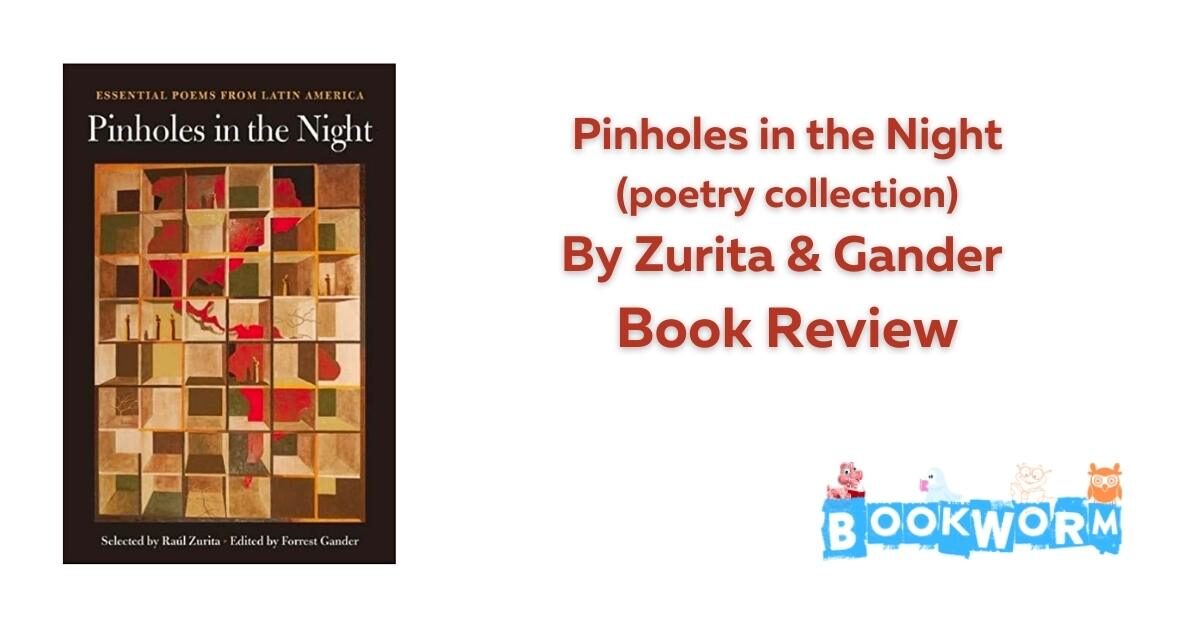“Life forces wane.
Death is the end of life.”
These two lines from the poem Life by Gonzalo Millán are interestingly the last two lines of the poetry collection that opens a window for new readers to taste the sweets and sours of Latin American poetry. There are many poems in the collection with their fitting translations, and let me share with readers of BookWorm Reviews that the translators have done a wonderful job in bringing the emotions to the English readers. Though I fully endorse the opinion that no translation can render emotions along with words into any other language, these translators have done sufficiently well and have certainly been able to fetch emotions from the original creation into the translated work.
There are 18 poets in the collection and many of them must be unknown to readers in the East. However, one name that sounds familiar to many of us should be Pablo Neruda. Yes, the collection also has a few poems of Neruda from his collection The Heights of Macchu Picchu. For readers to be able to fully understand, appreciate and get into the depths of the emotions these poets would have wanted to share with their readers, the translation becomes very important. And luckily for those poets, the translator, Forrest Gander, has done a decent job!
Not much can be said about the quality of poetry. It is to be enjoyed and appreciated by readers and a larger part of this reception and that appreciation is very subjective. We cannot force poetic truth, perception and thus appreciation upon anyone. I liked the poems in translation and could imagine the original poem’s impact on readers of the same. Neruda impresses as usual. However, the poets who impressed me the most were Gonzalo Rojas, Alejandra Pizarnik, Gonzalo Millán, and Idea Vilariño. All others were also impressive. As I said earlier, however, poetry is a subjective luxury!
“I’m no longer more than I forever and you
won’t be
any more than you
for me.”
Idea Vilariño’s poem Not Anymore impressed me with its sheer sentiment. It is about having to see one’s partner (husband or male partner in this case) go away. The poetess has written emotionally, sentimentally, and beautifully as well. There is beauty in that sadness. The last lines are powerful. Likewise, other women poets also impressed.
To be honest, other than Pablo Neruda’s works, this was my first introduction to poets from Latin America. And this introduction, to be frank, was more than eventful. I liked the way they compose poems – choice of events, scenario, setting up the mood and striking the right chords more than often. If you read them, you will love their works as well.
Nicanor Parra’s work Soliloquy of The Individual was also impressive. It tells what we have achieved so far and what we have lost (add the present as well… and the case for the future unless we learn from our mistakes).
“I invented some machines,
I built clocks,
Weapons, vehicles,
I am the Individual.
I barely had time to bury my dead,
I barely had time to sow,
I am the Individual.”
Now, to end this book review, I would suggest that frequent readers of English poetry or poetry, in general, go through this collection if they want to get a glimpse of Latin America’s world of poetry. They have some powerful verse to offer and you must not miss the chance to have a share of it. All the best!
You can get a copy of this book in paperback from the Amazon India website right now. Click the link below to get one.
Buy the book from Amazon India – click here to go to the Amazon book page.
Review by Ashish for BookWorm Reviews
Pinholes in the Night: Essential Poems from Latin America – Book Review
- BookWorm Rating
Summary
Pinholes in the Night: Essential Poems from Latin America is a window to peep into some of the best Latin American poetry. Thanks to the translators!




